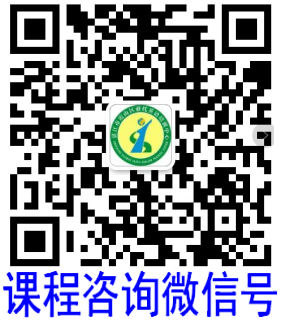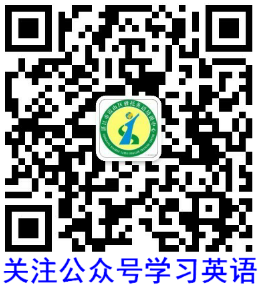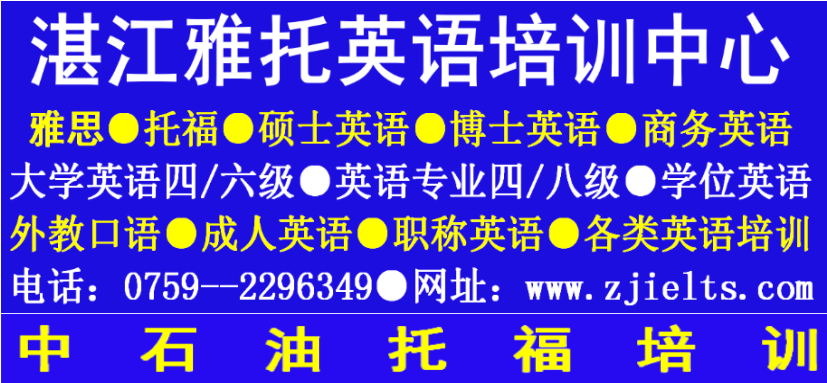大学英语六级阅读题目与讲解


Questions 51 to 55 are based on the following passage.
It is the season for some frantic last-minute math-across the country, employees of all stripes are counting backward in an attempt to figure out just how much paid time-off they have left in their reserves. More of them.though, will skip those calculations altogether and just power through the holidays into 2017: More than half of American workers don't use up all of their allotted vacation days each year.
Not so long ago, people would have turned up their noses at that kind of dedication to the job. As marketing professors Silvia Bellezza, Neeru Paharia, and Anat Keinan recently explained in Harvard Business Review(HBR).leisure time was once seen as an indicator of high social status, something attainable only for those at the top.Since the middle of the 20th century, though, things have turned the opposite way-these days, punishing hours at your desk, rather than days off, are seen as the mark of someone important.
In a series of several experiments, the researchers illustrated just how much we've come to admire busyness.or at least the appearance of it. Volunteers read two passages, one about a man who led a life of leisure and another about a man who was over-worked and over-scheduled; when asked to determine which of the two had a higher social status, the majority of the participants said the latter. The same held true for people who used products that implied they were short on time: In one experiment, for example, customers of the grocery-delivery service Peapod were seen as of higher status than people who shopped at grocery stores that were equally expensive; in another, people wearing wireless headphones were considered further up on the social ladder than those wearing regular headphones, even when both were just used to listen to music.
In part, the authors wrote in HBR, this pattern may have to do with the way work itself has changed over the past several decades .
We think that the shift from leisure-as-status to busyness-as-status may be linked to the development of knowledge-intensive economies. In such economies, individuals who possess the human capital characteristic that employers or clients value (e.g., competence and ambition) are expected to be in high demand and shor supply on the job market. Thus, by telling others that we are busy and working all the time, we are implicitly suggesting that we are sought after, which enhances our perceived status.
Even if you feel tempted to sacrifice your own vacation days for fake busyness, though, at least consider leaving your weekends unscheduled. It's for your own good.
51. What do most employees plan to do towards the end of the year?
A) Go for a vacation.
B)Keep on working.
C) Set an objective for next year.
D) Review the year's achievements.
52. How would people view dedication to work in the past?
A) They would regard it as a matter of course.
B) They would consider it a must for success.
C) They would look upon it with contempt.
D) They would deem it a trick of businessmen.
53. What did the researchers find through a series of experiments?
A) The busier one appears, the more respect one earns.
B) The more one works, the more one feels exploited.
C ) The more knowledge one has , the more competent one will be .
D) The higher one's status, the more vacation time one will enjoy.
54. What may account for the change of people's attitude towards being busy?
A) The fast pace of life in modern society.
B) The fierce competition in the job market.
C) The widespread use of computer technology.
D) The role of knowledge in modern economy.
55. What does the author advise us to do at the end of the passage?
A) Schedule our time properly for efficiency.
B) Plan our weekends in a meaningful way.
C ) Find time to relax however busy we are .
D) Avoid appearing busy when we are not.
又到最后一分钟疯狂的数学时间了,全国上下各行各业的员工都在倒数,试图算出他们的带薪休假时间还剩下多少。[51]即使如此,他们中的更多人会完全忽略这些剩下的假期,节假日也不休息,直到过渡到2017年:每年超过一半的美国工人没有休完规定的年假。
- 不久前,人们对那种敬业精神喽之以鼻。正如市场营销学教授西尔维娅·贝茶扎、尼鲁·巴哈利亚和阿纳·基南最近在《哈佛商业评论》(HBR)中解释的,休闲时间曾经被看作是社会地位高的象征,那是只有上流社会人士才可以拥有的时光。然而,从20世纪中期以来,事情已经开始朝反方向发展了一埋头伏案,而不是休息日(的多少),被看作是重要人物的标志。
[53]在一系列的几个实验中,研究员们阐述了我们逐渐开始崇拜忙碌,或者至少表面上忙碌的程度志愿者们读了两篇文章,一篇说的是一名男士过着悠闲的生活,另一篇说的是一名男士超负荷工作,日程非常满;当志愿者们被问及这两名男士哪一个社会地位更高时,大多数参与者的回答是后者。如果人们使用的产品暗示他们时间紧迫,则也会得出同样的结论:比如,在一项实验中,食品杂货配送服务商“亚英(Peapod)”的客户被认为拥有更高的地位,而在相同档次的杂货店购物的客户则被认为社会地位较低。在另一项实验中,与戴普通耳机的人相比,戴无线耳机的人被认为社会地位更高,即使这两种耳机都仅仅是用来听音乐的。
这些作者在《哈佛商业评论》中写道,在某种程度上,这种模式可能与工作方式有关,在过去几十年里工作方式已经改变了。
[54]我们认为从“休闲象征地位”到“忙碌象征地位”的转变可能与知识密集型经济的发展相关。
在知识密集型经济中,那些具备雇主或者客户所看重的人力资本特征(如能力和上进心)的人,在就业市场上往往需求量大,甚至供不应求。因此,如果告诉别人我们一直忙于工作,我们其实是在暗示对方我们很吃香,以此来提升在别人眼中的地位。
[55]即使你想通过牺牲自己的假期来伪装成忙碌的样子,至少也要考虑把周末空出来。这是为你好。
【论说文:现如今,忙碌被看作是社会地位高的象征,很多人牺牲假期,假装忙碌的样子。】
第一段:每年都有很多美国员工没有休完规定的年假。
第二段:过去,休闲时间被看作是社会地位高的象征,现在忙碌才是重要人物的标志。
第三段:一系列实验表明,人们崇拜忙碌的样子。一个人展现的忙碌程度影响他在别人心目中的地位。
第四至五段:忙碌被看作是社会地位高的象征可能与知识密集型经济的发展有关。
第六段:提出建议,工作再忙也要在周末放松一下。
51.What do most employees plan to do towards the end of the year?大多数员工计划在年底千什么?
A) Go for a vacation.度假。
B) Keep on working.继续工作
C) Set an objective for next year.为下一年设定目标。
D) Review the year's achievements.回顾一年的成就
定位:根据题干中的信息词employees,plan to do和the end of the year,可将答案线索定位在文章第一段。
解析:文章第一段第二句提到:“即使如此,他们中的更多人会完全忽略这些剩下的假期,节假日也不休息,直到过渡到2017年:每年超过一半的美国工人没有休究规定的年假。”由此可知,大多数美国员工到年底即使还有带薪年假也不休息,而是选择继续工作。故本题选B。选项A与原文正好相反,故排除。选项C在文中没有提及,也排除。选项D的干扰源来自第一段第一句话中的counting backward,原文指的是倒数自己还剩多少天的带薪年假,而不是回顾一年来的成就,故D也排除。
52. How would people view dedication to work in the past? 过去人们对忙于工作的看法是什么?
A) They would regard it as a matter of course.他们将它看作是理所当然的事。
B) They would consider it a must for success他们认为它是成功的必要条件。
C) They would look upon it with contempt. 他们对它嘴之以异。
D) They would deem it a trick of businessmen.他们认为它是商人的诡计。
定位:根据题干中的信息词dedication to work和in the past,可将答案线索锁定在文章第二段。
解析:文章第二段第一句提到:“不久前,人们对那种敬业精神喷之以鼻。”紧接着以《哈佛商业评论》中的文章为例指出,过去休闲时间被看作是社会地位高的象征,进一步强调了过去人们对忙于工作是看不起的,认为只有地位低的人才会忙忙碌碌。由此可知,选项C是对该部分内容的同义特述,故为正确答案。本题的解题关键在于考生是否理解turn up one's noses at这个固定器配,该固定搭配与选项C中的look upon... with contempt意思相同,都表示“对……一.喷之以鼻”。考生平时复习的时候要注意积累一份常用的固定搭配。其他三个选项均与原文不符,故排除。
53. What did the researchers find through a series of experiments?通过一系列的实验,研究人员发现了什么?
A) The busier one appears, the more respect one一个人显得越忙,就越被人尊重
B) The more one works, the more one feels exploited.一个人工作越忙,就越觉得被剥削
C) The more knowledge one has, the more competent one will be一个人越有知识,就越有能力。
D) The higher one's status, the more vacation time one will enjoy .一个人的社会地位越高,享有的休假时间就 越多。
定位:根据题干中的信息词find through a serials of experiments,可将答案线索定位在文章第三段。
解析:文章第三段第一句提到:“在一系列的几个实验中,研究员们阐述了我们逐渐开始崇拜忙碌,或者至少表面上忙碌的程度。”紧接着作者给出三个例子:第一个例子是志愿者们认为忙碌的男士社会地位更高;第二个例子是如果人们使用的产品暗示他们时间紧迫,就会被认为社会地位更高;第三个例子是戴无线耳机的人被认为比戴普通耳机的人社会地位更高。由此可知,这三个例子都说明人们显得越忙,就被认为社会地位越高,即越被人们尊重,故选项A正确。选项B和C在原文中没有提及,故均排除。选项D与原文主题相反,原文强调的是当今的观念:休假越少,越忙碌,社会地位就被认为越高,故也排除。
54. What may account for the change of peopleapos;s attitude towards being busy?人们对待忙碌的态度发生转变的原因可能是什么?
A) The fast pace of life in modern society.现代社会的快节奏。
B) The fierce competition in the job market.就业市场的激烈竞争。
C) The widespread use of computer technology计算机技术的广泛应用。
D) The role of knowledge in modern economy.知识在现代经济中的作用。
定位:根据题干中的信息词change of people's attitude towards being busy,可将答案线索定位在第四段和第五段。
解析:文章第四段提到:“这种模式可能与工作方式有关,在过去几十年里工作方式已经改变了。”紧接着第五段解释了工作方式是如何转变的,即“我们认为从‘休闲象征地位’到“忙碌象征地位’的转变可能与知识密集型经济的发展相关”。由此可知,以知识为主导的经济模式改变了人们的工作方式,进而引发人们对忙于工作的态度也发生了转变。选项D是对该部分内容的概括总结,故为正确答案。选项A、B和C在原文中没有提及,均排除。
55. What does the author advise us to do at the end of the passage?在文章结尾,作者建议我们做什么?
A)Schedule our time properly for efficiency.合理安排时间,提高效率。
B) Plan our weekends in a meaningful way.以有意义的方式安排我们的周末。
C ) Find time to relax however busy we are .无论多忙,也要找时间放松一下
D) Avoid appearing busy when we are not.如果不忙,就不要假装忙。
定位:根据题干中的信息词the author advise和the end of the passage,可将答案线索定位在文章最后一段。
解析:文章最后一段提到:“即使你想通过牺牲自己的假期来伪装成忙碌的样子,至少也要考虑把周末空出来。这是为你好。”很显然,作者希望我们无论多忙也要在周末放松一下,这对我们的身心健康是有好处的。选项C是对该部分内容的同义转述,故为正确答案。选项A、B、D偏离文章主旨,也不是作者给我们提出的建议,所以均排除。










